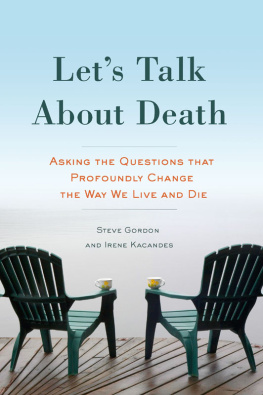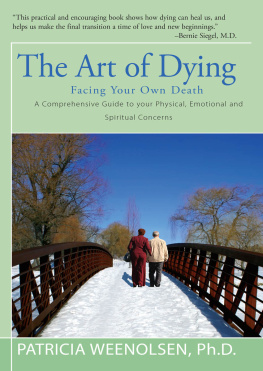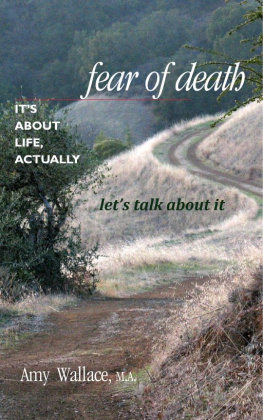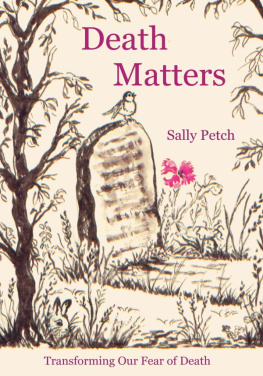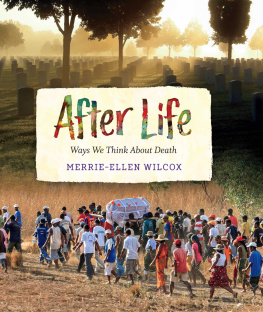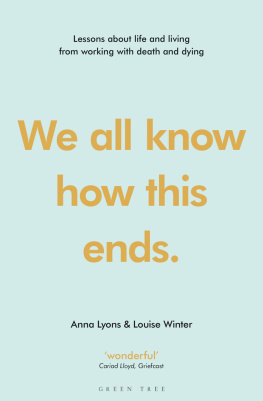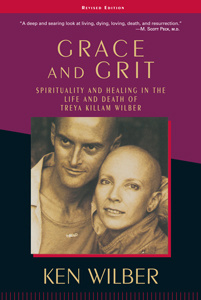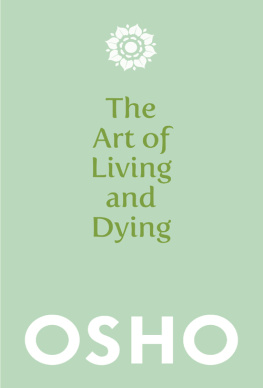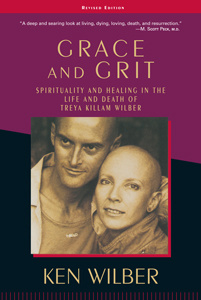
Irene would like to express her gratitude to Michael Matt, Rebecca Rothfeld, and Er Li Peng for tracking down information; to Adam Z. Newton and Karlene Decosta for information about Jewish and Jamaican mourning customs, respectively; to Galina Rylkova and Marianne Kilani-Schoch for leads on things to read; to Bruce and Emily Duncan, Marianne Hirsch and Leo Spitzer, Agns Rochat and Jean-Pierre Allamand, Becky Palmstrom, and to Father Deacon Gregory Uhrin and M. Lisa Uhrin, for listening to and sharing stories; to Dr. Kathryn Kirkland for allowing herself to be shadowed in the Palliative Care unit; to Deborah Canarella, Sheila Keenan, Steve Costello, Clancy Martin, Alexis Jetter, Jonathan Petropoulos, and Robert Donin for professional advice; to Jill Greenberg for seeing the potential in the book; and to Father Andrew Tregubov and the members of Holy Resurrection Orthodox Church of Claremont, New Hampshire, for listening to early drafts. Bernard Crettaz, Lucette Nobs, Isaac Ponte, and Barbara and Victor Ruffy helped me to understand Swiss attitudes toward mortality. Nora Pirquet and Jeffrey Title encouraged me throughout. I salute E. S. for his joie de vivre. Maria C. Kacandes-Kamil helped in so many different ways over such a long period of time that I cannot single out just one of them nor ever thank her enough. And Philippe Carrard almost always found a way to remind me to laugh. Finally, I want to acknowledge my brother-in-law, Steven Kamil, who believed that if telling his story could help others, he wanted it told.
Steve would like to thank the many family members, friends, and clients who were always willing to listen and to share their thoughts as this book was developing, with particular thanks to his wife, Nora, and son, Jesse, for their unflagging support and faith.
Irene and Steve would like to thank Nancy Rosenfeld for her enthusiasm; Gail M. Patten for her meticulous preparation of the manuscript; Dean of the Faculty Michael Mastanduno and Dartmouth College for financial support; and Steven L. Mitchell and his whole team for their professionalism and helpful suggestions.

Cornish, NH
February 17, 2015
Dear Irene,
I can think of quite a few times in our writing and our conversations when you said, in reference to whatever aspect of dying or mortality we were discussing, something along the lines of This could happen to either one of us at any time, God forbid. I remember you using almost those exact words once when we were sitting at your dining-room table, going over a section of this book. It was very hard to be sitting at that same table this morning and hear you tell me more about your cancer diagnosis.
I am so sorry. Whenever I considered what you said about such a thing happening to either one of us, I think I processed it as happening to me. It's hard to think of you now having to deal with such news, and with the treatments and uncertainties that will follow. I can almost imagine it as you starting this book all over from the beginning, only for real. Is your cancer unfair or unjust? Will you be open to the care that those who love you will want to provide? What kind of pain might you experience and what choices will you make for dealing with it? Can you be in the moment for each moment?
That last seems like the toughest part, at least to me. And of course, it's very early, too early to know what exactly the challenges will be. But I don't know anyone who is as deeply thoughtful as you, so I know you will face it with a clear head and an open heart.
I won't presume to give you any advice, but I will offer this observation: It's not a linear process. There isn't a start point and an end point and a straight line between them. There are ups and downs, good days followed by bad days, and vice versa. I think that is often what people feel is the hardest part to deal with. Your faith, your family, and your many friendsthey will all be your certainty when there doesn't seem to be any.
Please let me know how you're doing, and how I can help.
Steve
Lebanon, NH
18 February 2015
Dear Steve,
Thanks for coming over and thanks for writing. (Funny how natural writing to each other feels in this day of cell phones, texting, and social media.) I appreciated that you wanted to reach out when you got my news, and I was comforted by seeing you and hearing your voice, even as I didn't want to talk for long. I hope you can understand. It's not that I'm refusing to acknowledge my diagnosis. Rather, it is all pretty confusing right now. I feel the profound need to get my thoughts in order for myself before I interact much with other people. Given me and my habits, it won't surprise you that I've hardly told anyone, not even my family. Well, of course my husband knows. Other than hashing it out with him, I've been trying to clarify things for myself by writing. I've started a cancer diary, and it's helping me register my feelings about being in this situation. I am aware that there is so much writing on breast cancer out there, especially in the form of memoirs and blogs, even as I'm completely uninterested in reading any of them right now and uninterested in sharing most of my own thoughts with anyone else. I know that you have had many clients with cancer, including breast cancer, so there's lots I don't need to rehearse with you here.
There was a several-day-long black hole in my medical care between THE PHONE CALL and my request to my health clinic for guidance on what to do next. I felt like I'd been disconnected from any doctor I'd had contact with. Even my primary-care physician was out sick. Ironically, in relation to that vacuum, I then quickly found myself placed onto the gigantic medico-technological breast-cancer-treatment conveyor belt that is the Norris Cotton Cancer Center: MRI scheduled for Monday; appointment with the surgeon on Wednesday; a book and a DVD with my options to be studied before the Wednesday appointment; an MRI biopsy to check several additional suspicious spots; genetic testing; and so on. Just promised you I wouldn't rehearse it, and here I am listing things. Hmmmmm.
What's most on my mind that I set out to share with you is that I do not want to become my diagnosis. I believe I'm being genuinely honest with myself and now with you that I am not afraid to die. I'm not afraid to die as much as I am afraid that whatever life I have in front of me will become just the hospital, just the tests, just the treatments, just the recoveries. I shared with you long ago my discomfort with the rhetoric of battling cancer; I realize now that in addition to my general aversion to any metaphors of war, such frameworks define the participant only in terms of the disease. I've been told hardly anything about this cancer because they don't know much yet. But I guess I'm feeling right now that the scenario I put myself through years ago still holds: If there's something obvious to test or treat, I want to do it. But if treatment starts to take over my life, I will stop it.
Here's a related thought: One of the things that was very confusing for me about my father's and my mother-in-law's decline was a perception that they were loving the attention that came to them as a result of their physical problems. As self-focused as I have felt lately (from the additional views through the biopsy and the wait for the biopsy results and now walking through the system for breast-cancer victimsyick, I hate It's not a very helpful bookat least it wasn't for mebut the title sure does capture what's on my mind.
So here's something else I put in my cancer diary: Whether I am close or far in terms of my mortal endand we've said a couple of times that in the scheme of things, whether you die in childhood, middle age, or so-called old age, all human life is shortI want to become even more the person I've been striving to be this half century of my conscious life. There's the living in the present that I've talked about before. Right now that would mean not ignoring my moments of panic, despair, or denial. These have been brief; still, I've tried not to pretend that I was not feeling what I was feeling. (There's meaning to be mined from those grammatical negatives, I suspect.) At the same time, I've tried to hear my instantaneous evaluation of myself as completely childish when I protest receiving a cancer diagnosis, even if I'm only protesting to myself. Living in the present right now also means not obsessing in advance over what tests will reveal or what treatments will be recommended. Similarly, it means registering the joy of eating dinner with my husband or of teaching my classes. It also means being nice to the people behind those voices who are scheduling my appointments (especially if I've been on hold for a long time) or with whomever else I'm coming in contact in other situations related to my diagnosis. I fear this sounds cloying. Yet I'm powerfully reminded of one lesson I learned in the wake of the Zantops murders: If this is my last moment (granted, moment defined generously here: not even in my most pessimistic mood do I think I'm going to die soonnot from cancer anyway), I want to spend it as happily as possible. I want the persons I've interacted with, even if it's merely an exchange of glances, to feel good about what just happened, not angry, annoyed, or depressed. So, yes, I tell myself, go ahead and let it out: I DON'T WANT TO HAVE CANCER, but don't wallow in that thought.
Next page
